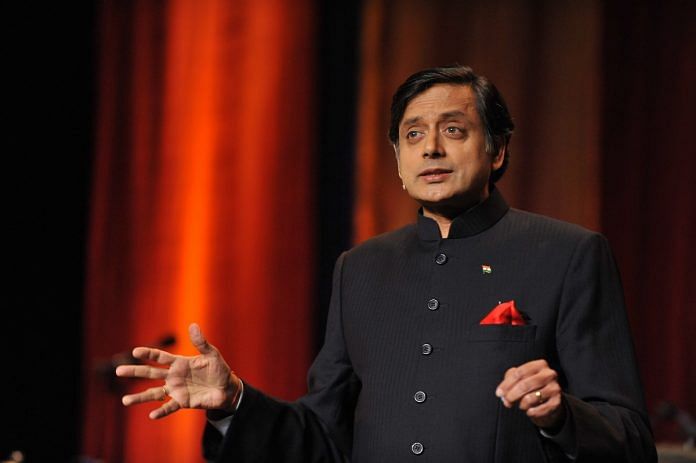Today, it is estimated that around 20 per cent of the world’s population, approximately 1.5 billion people, speak English. However, most of them aren’t native English speakers.
New Delhi: A quick look at Google trends Monday will tell you that it’s ‘English Language Day’. Widely accepted as the birth as well as death anniversary of the renowned British playwright William Shakespeare, 23 April is recognised by the United Nations as a day to celebrate the language.
The ‘English Language Day’ is the result of an initiative undertaken by the UN Department of Public Information in 2010 to establish days in honour of each of the global agency’s six official languages.
According to the official UN website, the days are an attempt to “celebrate multilingualism and cultural diversity as well as to promote equal use of all six official languages throughout the organisation”.
However, that English Language Day stands out is evident from the fact that Google trends won’t tell you 23 April is also UN Spanish Day.
The history of English
The evolution of English can be broadly divided into three phases: Old, middle and modern.
In 410 AD, the exit of the Romans from Britain left the country with the accidental gift of self-governance, as well as the responsibility to defend itself against the approaching Anglo-Saxons (Germanic tribes) and other invaders. These invaders arrived on their shores around 450 AD, bringing plans of plunder and another unintended gift – simple English words for everyday objects like house, hunt, and woman. A combination of the languages of the Germanic tribes gave Britain what we now know as old English.
The middle phase: Over the centuries, the shores of Britain were visited by more welcome and un-welcome guests — Christian missionaries, the Vikings, William the Conqueror from France etc, which resulted in the language evolving to accommodate all these foreign influences.
Modern English: Fast forward half a millennium, and English frequently found itself at the right place at the right time. Britain became the leading colonial nation in the 17th and 18th century, as well as the leader of the Industrial Revolution. The arrival of Christopher Columbus in America in 1492 also began the migration of Europeans as colonial settlers to the land of opportunity — a country that was to become the leading economic power of the 20th century.
The lingua franca
Today, it is estimated that around 20 per cent of the world’s population, approximately 1.5 billion people, now speak English. However, most of them aren’t native English speakers, who total only around 370 million.
So, why is English still the most popular second language in the world?
The answer lies in Britain’s history of colonial expansion, where language was used as a primary tool of administrative oppression, class distinction, and ideological control. ‘English’ and the pedagogy it espoused were seen as an instrument to ‘civilise’ inferior races and communities.
At the peak of its empire (around 1922), Britain governed over 23 per cent of the world’s population. There are at present 53 member states in the Commonwealth, but the actual number of Britain’s former colonies far surpasses this figure.
As a result of their imperialist economic agenda, the English language spread through religious (missionaries), educational (schools) and administrative (govt) channels to Canada, the Caribbean, Australia, New Zealand, South Africa, and countries in west and east Africa to name a few.
As of 2015, 54 sovereign states and 27 non-sovereign entities had English as an official language. English is also by far the most commonly studied foreign language in the world, followed by French at a distant second.
‘English Vinglish’ and the spread of linguistic imperialism
In India, the push for English education came when the British decided they wanted to expand their influence in the country beyond economic exploitation.
The Charter Act of 1813, which renewed British East India’s Company’s charter in India, also addressed its plans to impart education. Clause 43 of the Act states that money would be set aside for the “improvement of literate and the encouragement of the learned natives of India”.
In 1835, through the English Education Act, the British Parliament instructed the East India Company to relocate funds from traditional schools imparting lessons in regional languages to a focused restructuring of the education system to one based on a Western curriculum taught in English.
In his famous ‘Minute on Indian Education’, British politician Thomas Babington Macaulay, credited as the father of English as the global language of business, pitted the “civilised English-speaking white man” against a “backward, uneducated India”. He said the British must form “a class of persons, Indian in blood and colour, but English in taste, in opinions, in morals, and in intellect”.
He proposed that the British “ought to employ them in teaching what is best worth knowing; that English is better worth knowing than Sanskrit or Arabic”.
The Shashi Tharoor syndrome
When Shashi Tharoor makes a grammatical mistake on Twitter, it’s news. That’s because the eloquent politician has come to be synonymous with a certain degree of ‘class’ associated with speaking fluent English in India. Indian kids abroad continue to be the champions of spelling bees, because the language is still a symbol of aspiration and advancement for the people here.
The phrase “angrez chale gaye… inhe chhod gaye (the British left, but left you behind)” is used in common lexicon to indicate a westernised Indian who seems to have lost touch with Indian culture and language.
Thus, fluency in English seems to exist somewhere between aspiration and unattainability, but its power as the world’s unofficial lingua franca cannot be denied.




A grotesquely misleading headline and an abrupt ending. Poor article!